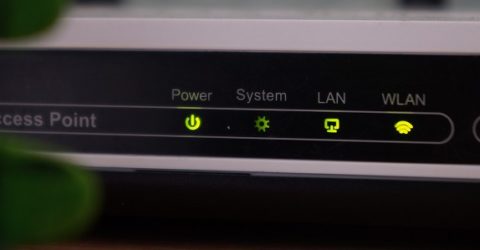Is the internet coming through my home broadband connection censored?
The thought of ISPs blocking content might seem unethical, but it’s something they’re increasingly being forced to do

The principles of net neutrality have been a cornerstone of the modern-day internet ever since the first websites launched in 1985.
Yet to the dismay of many people, our ability to view anything we want is increasingly being curtailed.
Censorious Governments are insisting on ISPs blocking content if they harbour objections to it, though of course these objections may not be shared by everyone.
In America, net neutrality effectively ended in 2018 under Donald Trump, despite historic public pressure to protect it, and a subsequent pledge by Joe Biden to reinstate it.
MoreShould you let your kids use TikTok?
In the UK, a recent court case has seen ISPs blocking content from websites deemed to be engaged in piracy.
So what else can’t you do with the broadband router that supposedly gives you unfettered access to the internet?
Piracy and pornography
Back in July, the High Court issued an injunction against 19 websites facilitating internet piracy.
Under the Copyright Designs and Patents Act, ISPs including BT, Sky, Virgin Media and Plusnet were forced to ensure data from these sites couldn’t be distributed to domestic routers.
A great deal of illegal and obscene content is already hidden from public view by ISPs blocking content before it can reach our routers.
As an example, the Internet Watch Foundation maintains a confidential list of child abuse websites, updated twice daily, which ISPs block at source.
Seeing the bigger picture
Few people would disagree with restrictions on child pornography websites. But what about legal material which appeals to niche audiences but might outrage ‘right-minded’ individuals?
Similarly, terrorism-related content may offend the vast majority of the population, but selectively taking it down erodes any claim to freedom of speech in a democratic society – it’s an impossible balancing act.
In the meantime, consumers can cloak their identity using a VPN or a proxy server. Both services disguise where data is being sent, to circumvent geolocation restrictions.
Similarly, search engines blacklist content they feel may be extreme or dangerous, but they can’t police whether people access this material by other means.
It’s therefore questionable whether censoring the internet is even effective, while the principles behind selective censorship are understandably contentious.
Most people recognise music piracy harms the artists, but where does the line get drawn? Could covers bands fall foul of this definition?
MoreDoes it matter which web browser you use?
Should negative advertising be censored to prevent harm to corporate interests? What if we banned ‘come and live overseas’ adverts for their role in lowering UK tax revenues?
More importantly, who decides what’s damaging enough to justify ISPs blocking content, and how do these arbiters of public decency keep pace with evolving social trends?
These are the questions ISPs will continue to wrestle with, as the volume and diversity of online content expands in tandem with our dependence on the internet.






